|
All right, bus drivers. Some of us other bus drivers have noticed you misbehaving, and we're not thrilled about it. Let's see if any of this sounds familiar.
1. Wow.
Gosh, these guys are in a hurry to get to the terminal. What's so exciting about the U District layover? Then there’s downtown.
“No, why? Who is it?” “I dunno, but he’s skipping the first few stops of every trip. He’s not picking up the guys here, or at Henderson.” “Oh my gosh,” I said. “That's ridiculous. He doesn't want sleepers, is that what it is? Or street guys? He's not supposed to only pick up people that he likes!" I snorted at the very concept. "He should just suck it up and do the friggin' work!" 2. The Big Idea In my opinion, trying to remember a lot of little rules isn't as effective as remembering one big idea. Don't bother trying to retain everything in this post. Let's just focus on the big idea. What’s the big idea? This is the big idea. Care. As in, the verb. Do the work like you give a [expletive of your choice]. Like you care. About the people, about your coworkers, about yourself. Take some pride in your work. All the actions above share a common element: laziness. Does being lazy and incompetent make you feel better? No. It’s no way to pass through the years. That’ll wear your identity of yourself down to something small and ugly, and you won’t like what you see in the mirror. Maybe you’re already there. The way out is to feel good about what you do, and the impact it has on others. In other words, the big idea is: Work together. Slow down. You don’t need to blast down 3rd, passing coaches on the right and cutting them off, like the 70 I share 3rd with every Tuesday, Wednesday and Thursday evening. I have no idea what’s so exciting to him about 3rd and Main that he’s in such a mad rush to get there. I’m genuinely terrified when he zips around me, whipping that 60,000 pound vehicle around like it was a plastic Tonka at the beach. Doesn’t it feel better to drive slower? To have less stress, not more? Am I crazy or something? 3. Always Forever Now It’s not about rushing. These aren’t taxis. You’re paid by the minute, not by how dangerously you get there. Maybe you've been told that your job is to get people from point A to point B. That is incorrect. Your job is transport people safely between point A and point B. You don't have to get them to point B. You won't be penalized if something happens and you can't get them there. You just have to run it safely and provide good customer service right now. This block. It's about the quality of time spent while you're getting them there. Passengers don’t know this, but operators do: breaking your back driving fast will give you almost zero time difference in terms of terminal arrival time. Sure, you got to Henderson two minutes earlier and made an extra green light. But was that really worth it? Take your time. And remember that your actions have real ramifications to the operators in front of and behind you. If you leave early, you're making things tough for your follower. She’ll have to carry what ought to be your people. This of course makes things tough for passengers too. If you catch up to your leader, get close to him so you can help him, get some of his people, and take the load off. He should know to skip zones where he doesn’t have dropoffs, which is where you can swoop in and help out. You don’t even have to pass him. I love helping other operators. It makes me feel great, part of something. 4. Let’s end with some Positive Examples.
5. Help other bus drivers. Help them with their sleepers. Help them with their poles. One day, you will need their help. We're on the same team. Let your fellow operator in on 3rd Avenue. Help your leader with the passenger load if you catch up to him or her (deets on both types of skip-stopping here). Spend some time with the system map. Figure out where the major routes go, and how to get to common destinations so you can answer questions and get a feel for where people are going and what they transfer to. As a supervisor told us when we were starting full time, “take some pride in your work. If you don’t know what bus goes to the U District, or how to get to West Seattle, you need to go get a job working somewhere else.” I'm not telling you anything you don't already know to do. You're a professional. Slacking off can be addictive, but being your best self just feels better. Everything I know about bus driving I've learned from you guys. I look up to you. Let's not let each other down. Care. That’s all I suggest. --- I need to balance the calling out I'm doing above– here are two links appreciating my colleagues, and a third chock-full of tips I've learned from them that I live and die by. It's because I care that I'm as frank as I am above.
5 Comments
“I think he's getting worse,” I said.
“It couldn't get any worse than this,” Don snorted. “After this, there's just being dead!” We were talking about a colleague of ours. I don’t spite my coworker friends who have terrible attitudes. I did when I started, because I was unintelligent. But a decade-plus later, I have a more clear understanding of how easy it is to get caught in the undertow of life’s wrongs. I’m no longer mystified by the pull of frustration and dejection, the urge toward jadedness as a survival mechanism. It's okay to be unhappy as a bus driver. It's okay to be unhappy walking down the street. I get it. I just try for the opposite. For my own sanity, I have to. We choose our truths, and I choose optimism because– as the Dalai Lama said– it feels better! Life is short, and modern life in particular is, among other things, the act of editing: there’s so much stimuli you have to select what to focus on, what to think about and how. I choose for my health and those around me. But in this world of balances, we need the opposite of Nathan, which is exactly who the driver we were discussing was. We weren’t disparaging him but rather marvelling, perhaps in the way some people think about me: How does this person exist? Don was shaking his head. “The guy ages ten years every... month. I'm worried he's driving around wishing he was dead. Which is not, you know…” “Yeah, not good!” I voiced what I’ve often wondered while listening to [Redacted]’s diatribes: “What I don't understand is, I mean, why doesn't he do anything? If there's something in your life you don't like, you change it, and if you can't do that you rewire your brain so you're okay with whatever it is. Right?” “Right!” “He hates it here. Great. Why doesn't he leave? I mean okay I know it's complicated.” “It is. His wife and kids... Here's what happened.” Don went into the convoluted details, concluding, “basically, he's got dual citizenship here and there, and he owns a– an apartment building? A home? On the actual island.” “Oh my gosh. This guy. Dual citizenship between America and [Redacted] is impressive. I've never heard of that. He's got money. He's got property. What the heck’s he still doing here? Does he like complaining about every second of every day of his life?” Don cleared his throat. He was beyond complaining about complaining. “So I've been listening to this guy, Hicks. And his whole thing is frequencies and energies and whatever other bullshit. But the point of it is, I really believe that if you search out the positive stuff, hang into the positive, dismiss the negative stuff, better things end up happening to you.” “Thank you! Exactly! The circumstantial evidence is overwhelming!” “And whenever I listen to it I think of you because you're the fucking poster child for this shit. If you just flow with life instead of fervently wishing for what you want, because that's really just you thinking about how much you don't have wherever it is. If you just put it out into the world, your good energy, your positive energy…” “It totally comes back around!” I paused, trying to gather my excitement into words. These were the thoughts that seem like contraband, ideas you don’t share aloud except with certain people. Don was one of them. “Often in ways we don’t expect. Or don’t want. But it comes around. And there's something about forcing life to go a certain way that just doesn't work. Like okay you know, with my book.” “Yeah,” he said, listening. “For a while there I was trying so hard to get a book published, doing all this stuff, breaking my back banging on doors trying everything, and after none of that worked I gave up on all this New York stuff and just went back to writing blog posts and having a good time, when all of a sudden this nice wonderful Seattle designer guy comes out of the blue saying hey, do you wanna do a book thing together? And then it just blows up in my face in the best way. It feels like it got dumped in my lap.” “It just happens. You just–” I was on a roll now. “Stop me if I've told you this already. But I remember reading this study, okay.* They got two groups of people, a group of people who consider themselves lucky in life, and a group that considers themselves unlucky.” “Okay. Lucky and unlucky.” “Yeah. And they had each person, individually, walk down a sidewalk on which a $20 bill had been placed.” “Uh huh.” “And each of the people who thought they were lucky walked down the sidewalk, noticed the $20 bill, picked it up and felt great about it.” “Sure.” “And then each of the people who thought they were unlucky walked down the sidewalk, and none of them even noticed the $20 bill. Not one.” “Because they're not looking for it! They're not looking for anything except their own favorite negative bullshit. You can't expect to find great stuff if you’re too busy blocking it out looking at the only stuff you think is there!” “Just going with the flow, seems to really be the way. Gently down the stream, kind of thing. Whether driving the bus, or in life. Aren’t buses just the perfect metaphor for life?” “Ha!” I don’t want to put a value judgment on which outlook is better. People have their methods for getting through the day, and I find that impressive enough. All of us face certain, impending, incontrovertible decay, gut-wrenching loss, disease, and annihilation. There’s no way around it. On top of that life drifts by without ever answering the questions we so ache to hear the answers of. It forces us to come to our own truths. We live our lives in a cloud of unknowing, making what music we can in the face of unending silence. Isn’t there something poetic about dancing toward the light nevertheless? Laughing together, smiling, joining hands? Goodness is the tool we have for resisting death. It won't work on our last day, but for right now, this afternoon... it does. Because it makes us feel whole. --- *Dr. Richard Wiseman, author of The Luck Factor. Nathan Converses With His Colleagues: Parts 1, 2, 3, 4, 5, 6, 7... and 65 It was one of the best conversations I've had, and I don’t quite know why. As ever in the summer of 2019, I was seated on the concrete in front of the CenturyLink building, leaning against the warm brick wall and waiting for my 120 to pull around the corner.
He ambled up with a bicycle in hand rolling alongside, forty-five and suntanned, clad in construction-spattered garb with a ponytail and bandanna. He began. “Man, I try to offer my seat to a lady standing on the bus, I forget how she said it, but she was like, get away from me! And I’m like whoa, lady, I wasn’t tryin’ to do nothin’. People think you're trying to take something, but sometimes it’s–” I knew exactly what he meant. “Ain't no agenda!” “Right! I was taught to hold the door open for people.” So was I, but he abruptly changed course. I leaned forward. “My girlfriend she works for FedEx. She's private contractor, she gotta load her own stuff. The FedEx Express guys they just stand there. Them boxes now, used to be 70, now they’re 120 pounds, I don't even know. I tell her she should get a DDL.” “CDL?” “CDL yeah. She has a perfect record, could get retirement, everything, but she says no. She complains. She always be holdin' it in, every car that goes by she has to get eight feet front of that car. I'm getting tired of hearing it, bro.” The tone infusing his frustration was that of reasonableness, perplexity. He was only exasperated in the sense that it felt as though he should be taking action in some way. I could see the concerns were pressing to him. The seat on the bus was forgotten; these were deeper notions, heavy on the mind. He fumbled with his bicycle. Sometimes you just need someone to talk to. I said, “that stuff’s dangerous man, ‘cause the five people around us… we end up becoming most like the five people we hang around the most, you know?” He became animated: “Dude. Dude.” “It's dangerous to be around all that negative energy. You might start to–” “You're right! ‘Cause I notice myself starting to bitch about stuff that never used to bother me. She gambles like crazy too.” “Oh, man. Money's too hard to get.” “That's what I'm saying!” He paused. We were in the realm society tells men they can’t go, but we didn’t care. We were talking out our emotions, through them, trying to reach clearer understandings of our mental health and why we cherish what we do. These are the conversations I usually have with my female friends. To be with a man discussing this– especially a bearded He-man in macho construction wear– was intoxicating. We were talking about sensitivity and matters of the heart. Is anything else more worthy of reflection? This is how I wish all men were willing to be. “I don't know what to do. I care about her but I’ll be honest with you bro, I don't love her. She’s good person though.” “I'm sure it ain't all bad,” I said. “I'm sure there’s parts about her that are great.” “Oh hell yeah.” “But you got to take care uh yourself. Protect yourself. If you can't be yourself in the relationship, that ain't healthy. And it's so hard to see straight when you're inside the relationship.” He said his next words aloud as immediately as he realized they were true: “I gotta cut loose of her.” I let the pause which came afterwards live a little. Was it because we were strangers this was going so well? Are the channels of intimate communication only open with either closest confidants or complete strangers, and no one in between? “That type uh negative stress is like a disease in the mind, I think. It’s tough to get that out, especially if she's around all the time.” “I don't know what to say to her. Man it's so good to talk about this,” he mused. “I can't be tellin’ my friends, they'll just tell her and tell her all wrong. I don’t know how to say it, you know?” “Maybe just be like, here's some stuff that's been on my mind. But you ain't got nothing to feel guilty about.” “She probably gonna react emotional, like what are you trying to say, you tryin' to break up with me, what are you saying.” “But just be like I ain't trying to have no argument, I'm just lettin’ you know here's some stuff that's important to me that I been thinking about. You ain't responsible for her emotions.” “Hmm.” “You know the thing that always happens to me? Is six months later, I get torn up and regret leaving whoever it is.” His eyes lit up in recognition as I continued: “But that ain't true. It’s just emotions, ‘cause they're still them and you’re still you and it's gonna be all the same problems all over again if you get back together.” “Bro. Totally. Man, this is so good to talk to strangers. I could never talk to anyone I know about this. My name’s Hendricks.” “I’m Nathan! Best of luck, I’ll see you around!” “Hey, anyone ever tell you look seventeen?” “Ha! Only every day!” “That’s alright though, keep bein’ you!” “You too!” You could smell the ocean of relief within him. He exuded a newfound calm, a sense of belonging in the world. I'm convinced this belonging was only half to do with decisions for his future; it was as much the bodied satisfaction of talking things over with a companionable ear. Of being heard, whether or not anything we discussed would actually prove relevant later. Listened to. The difference these things can make. I'll leave it to those around me to conclude whether or not I'm the same person I was eight years ago, when I started my blog. I lack the requisite self-awareness to make such pronouncements.
What I can say is that some of my earlier posts carry a specificity of romantic perspective which was more limited than it is now, and which I've expanded as the years have worn on. I was learning, you see, and still am. My deep-seated enthusiasm for human existence is in the early posts more exclusively aimed at the downtrodden, those souls with whom I identify most closely. It's easiest for us to sympathize with our own experience, and as a working-class mixed-race adult who will always be, on the inside, a quiet, shy child from a working-class immigrant family, I feel an affinity for those who similarly live in the humble margins, taking life as it comes and making the best of things. The compass point of my enthusiasm remains weighted for this reason and one more– the people I encounter in the working-class and low income neighborhoods I serve have, in general, been nicer to me. It's fair to state I've observed a greater appreciation of kindness and respect in those populations, and how am I not going to welcome that with open arms? What I take issue with in my younger self is how I allowed this enthusiasm, these observations and inclinations, to limit my appreciation of people outside the groups under discussion. Youngsters– and humans at large– tend to categorize what they do not understand, and I've fallen for that trap as well. In my early posts you may notice a whiff of condescension toward people who don't engage, commuters and other affluent passenger groups. This reductive and binary sort of thinking, wherein we turn away from one set because of how much we like another, or disregard entire populations based on the high-profile actions of a few, is best described as exactly the type of prejudice I seek to dismantle in my writing, and the reverse prejudice that surfaced in my thinking back then is at best problematic, and at worst hypocritical. Yes, I feel more loved on routes like the 7. People engage more, smile more, make more eye contact, reach out to each other, remember me. Yes, these observations have led me to develop preferences, bolstered by the congruences of my own background. But that's not the whole picture. No one culture group has a claim on humanity's best traits. Two things have changed in my life in the interim. I didn't used to know a lot of wealthy people. I do now. Yes, money has a way of poisoning people. Yes, luxury vehicles tend to drive with less respect for those around them. Yes, apathy and the upper echelon are often bedfellows. But not all the time. Especially not now, when income disparity is such that most of our city's upper class is just another part of the 99 percent, not the one percent (Level 7 Amazon only makes $153k annually, not the one percent's $7.3 million). The second element is more important, and it's what happens when you become humbled by tragedy. It's possible to make it through your teen years and perhaps even a chunk of your twenties without slamming into the wall of failures bigger than yourself. Of Things Going Wrong and Just Not Working Out. Eventually, despite your best efforts, you'll come across an obstacle you can't surmount, that you'll instead have to adjust to living with. Do we come of age in the aftermath, when we realize that everyone around us is damaged goods too, and that they deserve endless and unrelenting forgiveness, because they're trying, as we are, to find love in whatever manner they most cherish– acknowledgement, respect, validation, salvation? It's okay to be quiet. Introverted. Some of my favorite people thrive by withdrawing, and I know now to better admire them for it. It's okay to be angry, frustrated by my friendly airs and wishing for silence. The story of a person who didn't like my colloquial approach at first and angrily accosted me for it, but who would later come around, doesn't need to be told here. It lives best spoken by those two who were there, if at all. It lives best in the rising sensation I had driving away. Alisha. Thank you. Not just for the second conversation, but for both of them. You confronted me directly, rather than going through the back channels to my boss's desk, and I respect that. But more importantly, you came up a second time, and shared what you shared: a change of heart, gifted with kinder airs. That takes courage and remarkable grace. I am deeply humbled. I was on the side of town I live in but feel a stranger in, and this affluent commuter had expansive humility enough to apologize for her earlier indignation and admit she felt differently now. It remains one of my favorite moments on the 5: near the tail end of the route with no one else aboard, introducing ourselves as friends at the end of the discussion, erasing a bad night and rewriting it anew. If her initial resistance to kindness plays into an assumption we might carry– that convivial interaction (especially between classes) is more readily rejected in wealthier areas, I've got a counterexample: a furious homeless man leaving my 10, the last in a line of deboarding passengers whom I was thanking and faring well. When he got to me he snarled threateningly, "Don't say anything to me." I nod-lowered my head, gently raising my hands in the air. He stormed off, upholding the unspoken truce, refraining from whatever his line threatened. He was going through something, and like Alisha on the other end of town, he needed space and silence, not small talk, to work through whatever it was. There are good people everywhere. Sometimes they just need a little room. I forget her name, but I remember the enormous Barnes and Noble Booksellers that once stood here, inside the Starbucks of which she worked. Someday people won’t even remember there was a Barnes and Noble here. But today was before present became past, just another day in Westwood Village, as I dashed into the store while on break from the 5/21. I knew her through her boyfriend, a Jamar who’d taken my 49. Before that they both knew me from the 7.
She saw me and glowed. She probably glows for anyone who walks in. My kind of people, I thought. I was glowing myself, having just heard the news, and had to tell her: “Hey. Did you know, Seattle Magazine just named me one of the 35 Most Influential People in Seattle!” “Whoa!” “Yeah! It's ridiculous! I'm just the bus driver!” She paused, thinking about it, unable to keep from grinning. “Um no. That's not ridiculous. You totally… Nathan, that's like the lowest honor they could give you.” “No way.” She shifted the stance of her hips, the better to emphasize her point: “Okay. Do you realize you make getting on the number 7 bus... Pleasant??” “Ha!” “That is not an easy thing to do! That's hard! And you just... Whenever I would see the driver had curly hair, I knew, I was like okay, today's gonna be a good day.” “You, this makes my day! My week!” “I'm so glad I could make the Maker of Days' day!!” She would shortly move to another state, off to a new start with her partner. I imagine I’m only a footnote in what seems, on the basis of her consistently ebullient attitude, like a rich and fulfilling life. Does she know I still remember this exchange? That it comforts and inspires me? You have to understand, when someone tells you you’re the most influential person in the city, you don’t believe it. Who would? But when someone tells you the specifics of how you elevate their day, their life for a brief moment, that reads differently. It carries further into you, freed as it is from agenda and committee, one person to another telling how they bring the light. Would that I had the adroitness of mind to tell her how similarly she brought me up after my long trips on the 5. To walk in and see a smile like that; you like who you are all over again, in the presence of such people. I don’t remember your name, or where you were going, and if I saw you again I’d recognize you from your attitude, not your appearance. Thanks for giving that energy out to people. It means more than you know. She looked agitated. She was.
“How you doin’,” I asked in a calming voice. “Those fat bitches,” she replied, exasperated. “If you'll excuse my language.” She was looking down the sidewalk at a trio of ladies walking away from the bus. “They left they baby all the way over there in the alley.” When one of the women turned back to her– our friend the speaker was still halfway stepping onto my bus– she yelled, “Yeah you better walk away before I call CPS on your dumb ass! You wanna bring your three aunties out on the town you still can't even hire no babysitter… all y’all dumb bitches oughta be ashamed of yo’selves!” A scruffy young man in an entirely different headspace stepped aboard after her. “Hi, how you doin’,” he said to her. “What?” “I said how you doin’, sister.” Clearly still incensed, but knowing to be polite to this unrelated figure: “Fine thanks for asking.” I smiled. She was mirroring my initial words to her, and so was he; I’d just exchanged a how's it going and thanks for asking with him in earshot of her. Kindness can be infectious. But so can the lingering aftereffects of anger. “Hey,” he said again. This time she reacted as any woman wishes she could when a man unduly bothers her, exploding with careless abandon: “Ah already spoke to you so what are you still doing in my face!?? A person don't have to talk to every single person the whole goddamn night when they tryna go home!” The expectation of sensibility latent in her outburst prevented the air from becoming threatening. Respect was still floating about. He blew her a kiss, unfazed but acquiescent. She said, “I apologize bus driver, I’ma be quiet now.” “Okay, but it's all better now…” “Ah just don't know how I'm gonna make it to my destination with all these people bothering me!” “Well, let's see what happens!” After a pause I added, “I admire your integrity. I respect how you’re standing up for yourself.” Everyone’s got a different strategy. Hers was of the stripe that can lay down the law with an authority that still feels respectful, that somehow doesn’t strike one as judgmental. I don’t know how to do that. I’m so busy thinking of the angles and generally overwhelmed with life that the clarity needed to invent such forceful statements on the spot without fearing their outcome eludes me. I tend to think a few chess moves ahead, considering how I can get along with whoever it is. But I’m glad folks like her exist. Those ladies needed to be told off for abandoning their baby in an alley, and she was just the one to do it. The just-too friendly guy needed a boundary drawn for him, and she cast it down with iron and fire. She has skills I don’t have. It takes multitudes, this life does. We all have our role to play. The Hope I wish the video could show you how packed the place was. Every available place to sit (and, in the back, stand, as many did) was taken. Wordstotime.com had me giving the speech in 72 minutes– but we got it out in 54 jam-packed minutes, and I’m grateful it went over as well as it did, especially given the pointed and specific nature of the material. (When all the copies of the bibliography of a lecture go like hotcakes… what can I say but thank you!!) The comments afterwards from folks young and old about how the evening put a name to their daily concerns, reinvigorated their appreciation of the value of knowing history, how addressing contemporary problems can be exciting and inclusive... I’m both thankful and pleasantly surprised. Because hearing this data about your age group can be easy to take personally. I speak both for the audience and myself when I first encountered the research. It’s useful to remember we have a tendency to interpret facts emotionally, to take data in as something containing judgment. But facts aren’t judgments or opinions. They’re statements of the nature of existence, and they contain no agenda. My aim in presenting them was to package together what we usually hear in the context of disappointment as something else– a reason to get excited. What impedes my generation’s awareness of history, happiness, and value of real-world communication, and how can we– as individuals– address that? Problems don’t get solved by pointing fingers from the outside, but by creating generative positive momentum from within. On Stereotyping If there was any ambiguity about these concerns, I wanted to clarify them here. Anyone more than passingly familiar with my work knows that casting a pejorative eye on others doesn’t interest me, and that generalizations are the opposite of my approach. Only someone unfamiliar with statistical analysis would accuse myself, Twenge or others of generalizing or stereotyping: stereotyping is the opposite of what such research provides. To stereotype is to presume an individual’s actions as representative of their culture group. Observing trends over big cross-sections of people using the scientific method is the best way to obviate stereotypes, not perpetuate them; we learn with accuracy which behaviors most, but not all participants in a study reflect. To say that more people in South Korea than in Germany know how to use chopsticks isn’t a stereotype; it’s a statistical reality. And in the same way responding to emotion with logic never works, reacting to facts with emotions only gets us so far. What I mean to say is– don’t take offense, contemporaries of mine. I like you. I am as I imagine you are: another young person like and unlike these statistics. Just like the subjects in the scores of studies I source from, I am a young person who uses technology too much, who wishes to make healthy decisions. Let’s continue to be who we are, and take care of ourselves. Enjoy! Click the PDF below for a detailed bibliography (also included at the end of the video). Special thanks to Brittany Rose Hammer for filming, editing and mixing this video, to MOHAI for allowing it and recording it, to Rachel Spence for everything, and to the audience for being as open and enthusiastic as they were.
Will this work? Let’s see. The conversation contained some rich sublimity deep down, buried within a sea of inconsequential nothings. The ingredients were all familiar, but something ineffable came of mixing it together– what she brought to the space, and what I gave out in return. We made the best of each other come alive, and the air benefited on a plane beyond the verbal. All I have to convey it to you, dear reader, are words, and for that I hope you’ll forgive me.
But picture yourself on a southbound 36 at 3rd and Union, back in the days of the chat seat– you remember, the older buses with stairs at the front, wherein the first passenger seat was very close to the driver and the layout practically cried out for small talk. She’s stepping on now, a face I’ve picked up before, but now there’s time to converse. Trim with sparkling brown eyes and a bouncing, playful demeanor; she has on a habesha kemis laced with floral patterns of purple and red, with a netela of bright aquamarine. “Hey! Nice to see you!” I say, as she enthusiastically proffers her arm for a handshake. She waits at the front, wanting to talk more, and I gesture toward the chat seat. Thank goodness for the old bus. The masses bustle in. She watches as I greet everyone boarding with enthusiasm. Her, leaning forward once we’re moving again, with an expectant smile: “Haven't seen you in a long time!” She's one of several today to say, “I remember you from the 3 and 4!” before then asking, “You drive 36 now?” “Now I drive something different every day. But I still love the 3 and 4!” I exclaim, with my hand on my heart. “Where are you going today?” “Church.” “Oh over by the 4, in the neighborhood?” I used to take her to the Ethiopian church in the Judkins area. “Yes, that's one of them!” “I remember!” “I go to church now, I pray, then I go to work!” She nodded with a self-aware affirmation, cognizant of the humor of lists. I laughed. We were at the stage where every sentence has an exclamation point. “It's a good plan! Where do you go to work?” “Sea-Tac.” “Oh, long way.” “Yeah, I take train.” “That's good. Easy.” “I live in Lake City–” “Oh, I live there too!” Her eyes brightened. She had so much general enthusiasm for life. But who talked to her? How often do you really think someone outside her very specific culture group approaches her pleasantly, with no motive, for just a chat and hello? Light rail and Lake City became that much more fun to talk about. “Yeah, I take the 41!” I said. “I go to the Fred Meyer up there, you know the Fred Meyer?” “Yeah!” she exclaimed. “I was just at the Fred Meyer.” “When?” Laughing: “I did not see you!” I replied, “it's true, just last night! I went to get vegetables. Making a salad.” “I like Fred Meyer. I used to live Rainier–” “Okay–” “Yeah, much better than Saar’s–” “Yes!" “–and Safeway.” We paused briefly as more masses got on. Every bus driver knows it: the 36 is a buzzing hive of activity no matter the hour. We were heading south on Third during the post-lunch lull, still full but pleasant. I said, “What kind of work do you do at Sea-Tac?” “Clean cabin?” “Say again?” “Clean cabin.” She showed me her shirt. Underneath the elegant dress was, in an amusingly anachronistic surprise, a neon green uniform T-shirt. “Oh, excellent!” Not knowing what to say, I replied with, “I do photography.” I handed her my card out of some need to further connect, explaining the website, how it has my pictures. Why? I have no idea. This glow wasn’t romantic; it was beyond. It was existential. You meet someone this good at being happy, and you don’t know what to do with yourself. She said, “Do you put pictures on cups and t-shirts? Because I have a five-year old daughter, I want to get it for her.” I didn't know I loved when people ask me if I put pictures on cups. “Oh, I'm sorry. I don't know how to do cups and T-shirts.” “It's okay!” “Do you like working there?” “Yeah. I learn a lot. About the engine, about the fuselage, about the cabin…” She wasn't being sarcastic. A fellow genuine spirit, hungry for life. “That's great! I was just down there yesterday, coming back from California.” “Oh what time!” She was asking a question, but an exclamation point better conveys her spirit... “We landed at 9:05, but it was late, so 9:30.” “Oh, I was there! I do 4 to 9, 4 to 9:30.” “That's amazing!” I’m guessing the eavesdroppers on this cluttered peanut gallery of a bus were chuckling at us. But can we help it if we get excited easily? Are we going to do anything about it just because others might disapprove? Nope. “I should have said hi!” I exclaimed, despite the obvious unlikelihood of such a thing happening. “What airplane?” “Virgin America.” “Oh yeah. I do those.” “Wow," I reflected, thinking of how dirty planes get. "That must be a lot of work. I try to keep my area clean. Now that I know you work there, I'll keep it clean even more!” I threw on my left signal with my shoe, as you do on buses, and triggered the switch in the trolley overhead to set us on the left-turn wire toward Jackson. Out loud I said, “Are you going to the church by the route 4?” The eagerness of her reply had more to do with the fact that I actually remembered. I hadn’t seen her nor dropped her off there in at least a year. “No, no, it's a different one!” “Okay good! I was thinking, it's too long to walk to the other one!” “Oh no, I will show you.” How much of any conversation is really a search for togetherness? The location of her church was not essential to me, and nor, I imagine, was my ability to do photo print T-shirts for her. But the feeling. That’s why we talk, and it’s what informed the next several lines, the meaning of which lived several layers higher, floating above the literal words themselves: “So do you have other children besides your daughter?” “No. Just one is enough.” That got a laugh from more than one person. I said, “Good. Me too, I am only child.” “Ha! Perfect!” “She does not want any other brothers sisters. When I hug other children, she cries!” “Aw! When I was little, my Mom asked me do I want a little sister, I said, ‘Nooo....’” “Ha! Yes, at first my daughter she wanted little brother, she was lonely. But then she saw me hugging other children, her friends, and she crying and crying!” “Now she understands!” “Yes, one is good. Two is too many, too expensive.” “Yes. Only child is best.” I quipped, “This way she will always get more presents!” At this point Yolanda, a regular (whom you remember from here and here), stepped on. “That looks beautiful,” I said to her transfer. As she sat down, she asked the bus, “Anybody need a transfer? I'm not gonna use it!” Incredibly, the peanut gallery remained silent. I said, “How could anyone refuse such an offer? You're so generous!” My friend up front said, “You are very nice driver, and handsome!” I blushed. “You too!” “I have Orca card, and one day I was going home and I paid the card and it said 'not enough money,' and my friend was on the bus and she said it’s okay, I can pay for her, and she paid for me, and the driver got so mad!” She said mad as if it was an incomprehensible foreign concept, which it should be. “He said, her money doesn't count, you're supposed to pay with your own money, without her assistance. But it's my culture, when somebody needs help, you offer help them.” “That's a great way, a great culture.” “Yes!” “Yes! It should always be that way. Your friend was very nice, helping like that. I'm sorry that happened! People are very strange sometimes.” She laughed. “Maybe he had something going on in his life, you never know. I wonder sometimes.” She pointed, standing up. “Right down there, that is the church. There are two of them. I go that one, the big yellow one.” “It was nice talking to you. What's your name?” “Lamlam.” “Nathan.” A second handshake, firm and strong. “So nice to see you!” After that Yolanda came forward, replacing the vacated chat seat. I asked how she's doing. “You're one of the best, Nate,” she said, with authority. "You're one of the best. If you can get along with somebody doesn't even speak ya own language, shakin’ hands at the end, gettin’ her name... that was beautiful. That was beautiful.” “Yolanda.” “Nathan. I’m serious. We need more like you.” Strangers bring us up. They deepen our experience. I feel spoiled sometimes, working at a job that affords me such luxuries. Many of my friends aren't so fortunate to be on speaking terms with people outside their class and culture groups. I can share that the effect of exchanging bubbly banalities with such a vast spectrum teaches me how close we all are. The easiest way to overcome prejudice and misunderstanding is to spend time with people. I pity the folks who don't get to be in my position, the ludicrously fortunate position of getting to work with such a diverse workforce, or serve such an uncurated mass of humanity. I can see things I wish they could, too. I get to see it firsthand: Most humans in most circumstances, everywhere, have good in them. You remember John, of John and Valerie fame, from my book– the chapter called "Fighters and lovers, In and Out of Time." You can also catch us gabbing the afternoon away here. I usually see him as part of a group– a gaggle of friends, or with Valerie. Getting him alone is best though. Some people reveal themselves only in one-on-one conversations.
“I'm out, man. I was over on 5th Avenue, hangin' with the boys over there." It took me a second to realize John was referring to the County Jail. "I'm out." "I'm glad you're out, man! I'm glad you're out. Nobody should be stuck in there too long." "It was terrible, man. But I stood my ground and took it to trial, 'cause I didn't do it." One second ago this was small talk. Now I was serious, made aware of the gravity of what he’d just gone through, what an impact it would now have on his life moving forward. "John, I'm really glad you did that. Instead of that plea bargain stuff they always try to get everybody to do." "Oh heellll no, no way plea bargaining. Can't believe they try to pull that shit on people, man, innocent people. Put a record on 'em." I threw up my hand. “It's inhumane! I'm so glad you put your foot down and went all the way through with it.” “Yeah.” “‘Cause sometimes you gotta take that risk. And it's a big risk, you know?” “Well I had to, man, ‘cause I didn't do nothin'! I was there. I was there when it happened, but that doesn't mean you did it!” “Exactly, doesn't mean I did it." "They still arrested me, try to get me to plead guilty.” “That's scary. ‘Cause then your life's over, man, they try to make it all attractive, we'll let you off with this, instead of jail time, but then you get out you can't get no job! And the whole time you know you never did it to begin with! Even though court says you said you did!” He shook his head. “That's how they get you. I just had to take it to trial ‘cause I know I didn't do nothin’. They try to get me to lie, I'm not gonna lie. I know what happened.” “Man, it's like they want people to have felonies!” “It's fucked up. It is. That ruins people," he said, staring into the middle distance. A face wrought with recent memories he was glad were no longer present. “They try to scare you with jail time. But you just gotta go for it man, that's how you get it done! I'm so glad you went for it. ‘Cause it's a risk! But you don't want that on your record.” “Well, if you insist on a trial you gotta be in for a couple of months.” “Which is terrible.” “Oh it was horrible. Man, I don't wanna say how long I was in there.” “But now you're out, and it's clean.” “I am, man, I am–” “And that's great.” “Man, it's always good to see you. We been knowin' each other a long time.” “It has been a long time!” “I ‘member first time I saw you on the bus to Federal Way, you had that beautiful lady with you. What had the brown hair and the eyelashes. I said to myself, he's got a beautiful woman with him. He got it goin’ on.” That was ancient history for me. I laughed. “Man, you've got a good memory. John, wow! That was ages ago!” “See, we been knowin’ each other! Young man!” “It's good to know you too!” “Family!” He exclaimed his appelations for me with a gusto both manly and endearing. I chuckled, sighing with relief and gratitude for his insight. What a stroke of fortune he had the head to think a few chess moves into the future. Pleading guilty reduces your options like nothing else. I'm so glad he made the moves he did, was able to make the moves he did, and that it turned out such that we had the luxury of complaining about injustice as free men, feeling safe and less lonely, living in the simple freedoms: Chit-chatting down the balmy hours of another Seattle Sunday. “Hey, it’s my guy!” I called out, with pleasant surprise. I only ever see him on the 7, on his way to the 107. What was he doing up here in the U District? He explained about a new job, a different restaurant; Ivar’s, if I recall.
“Does this mean you're no longer at Jimmy John's?” “No way!” “Ha! Feels good to be outta there?” He was a mixed-race man my age with Latino heritage, stocky, with long frizz-wavy jet black hair, the sort that wouldn’t be out of place on the front of a romance novel. He spoke the chaotic vernacular of 21st-century America, but exuded a kindness that radiated. Certain personalities seem generous with their goodwill even when they're not doing anything. I felt like my people were near when him and his lady would get on late at night in the southlands. “Yeah, and I'm ‘bout to be a prep cook, they're gonna pay me fifteen an hour.” “Awesome! You know I was just thinking about you the other day, cause I was in that Jimmy John’s. I thought okay, he musta found something else...” “Yup. And we're living in Bothell now.” Standing at the front by me, excited. I said, “What???” “Yeah, and– hey, did I…? Lemme show you. I'm a father now.” “Whoa. Congratulations!” “Yeah, it’s a daughter." “When, how old is she? When did this happen?” “She's five months. Here, hang on.” “Yeah yeah, lemme find a red light. Oh she's beautiful.” I let the big news sink in. “Man, being a father, they say it just transforms your mental, your headspace, you know?” “You're not a father?” “No I got nothing. But I hear people talk about like, on a fundamental level–” “Yeah. It changes your whole…” “Perspective, priorities?” “Yeah, what's important, your priorities. Cause even if my girl and I aren't always together, I know I'm always gonna raise this kid.” “That's real deal. That's beautiful too though. Five months old, that must be some real 24-hour type stuff.” “Yeah. 'Cause I take class in the day, go to work at night–” “Oh what type a class? Like parenting stuff?” “Yeah parenting stuff, and also uh, some drug stuff, cause I had some run-ins with the law when I was younger.” “Right on. We all do. I feel like, the two hardest things to do in life are, getting offa hard drugs, and raising a child.” “Yeah.” “And man, you're totally doing both!” “Thanks, dude!” The conversation could've taken either fork in the road: superficial and comedic, or truthful. He was feeling truthful. After a moment of reflection watching me work he said, “You really love this job, I could tell.” I smiled. Most people stick to talking about themselves. He was beyond that, open to the world outside of himself, the concerns even of strangers like myself. Soon I would know why. “Yeah man," I said. "I'm thankful to have the job, but I'm also thankful that I like it, you know?” Two completely different things, both of which I'm mystified and thankful to possess; but his mind was on a larger plane. His truthful urge fulfilled itself, spilling out unbidden, the way it only can when you know you’re in a safe space: “Actually,” he said, “I just found out I have diabetes.” It was the sort of statement that makes you to replay the entire conversation in your head. New jobs, fatherhood, self-improvement... the connecting tissue revealed itself. We were talking about Death, and all the ways us tiny humans try to stand up and face it. When you've been diagnosed with the seventh-leading killer of Americans today and the number one cause of kidney failure, adult blindness and lower-limb amputations... Photographs of your daughter need to be shown to strangers. Proof of life. Proof of cyclical recurring goodness and existence. The drug class, the efforts toward being one's best self. When the Void shows you its face, a new urgency courses through you, makes you better than you ever were before. My solution has been a headlong rush of creating, as heedlessly best as I know how– the film, the book, the darkroom photography, the desire to solidify this blog as a complete and finished entity, a thing made. His solution wasn't so different: creating, growing, nurturing. It is what we do. “What??? I am so sorry.” “Yeah man,” he said. “Oh,” I said. Our pauses weren't awkward. They were fraught with recognition, silent comforts. You go through your pain so you know how to listen to someone else, someday, when they go through theirs. “Yeah dude," he said. "I got diagnosed earlier today. I mean I kinda knew I had it though.” “Bro. Check out this documentary, it's called What the Health.” “Dude, I seen that! That's my favorite type a thing, stuff like that. I watch all them shows, like Food Inc…” “Chicken, sugar, hospitals, it’s so interesting!” “I'm gonna watch that one one more time and take notes!” Diabetes, today. The weight of it, to look about yourself and know everything is different now, everything has the slant of this changing things. You pretend it isn't a big deal, and in many ways it isn't. You necessarily downplay it so you don't have to stare into the gaping void all the time. Except it's still there. An asterisk would now follow him, trailing his decisions; shaping differently what he called freedom. The diagnosis must have been overflowing his mind. I’m so glad he let it out. We do what we can in this short life, humbled ever further by age and time. But I know if he read this he would laugh at my heaviness. "Ease up, bro!" I can hear him saying, with a grin. And I would admire him for it, because that cavalier optimism is exactly what we need mixed into our sorrows if we are to flourish. Laughter is magic precisely because it lacks logic; it is beyond reason. I will smile now, regardless of my futures. The void can wait. This is what is real and true, right now, and it is fabulous: Making friends on the bus ride home. |
Nathan
Archives
April 2024
Categories |
||||||
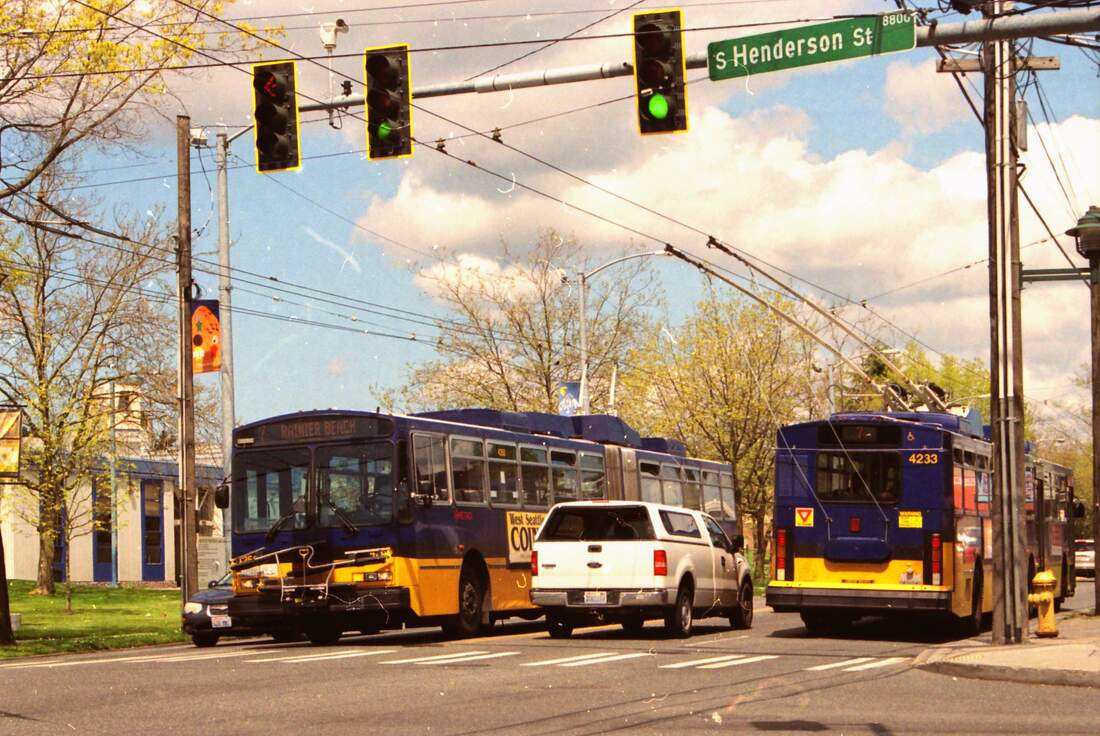

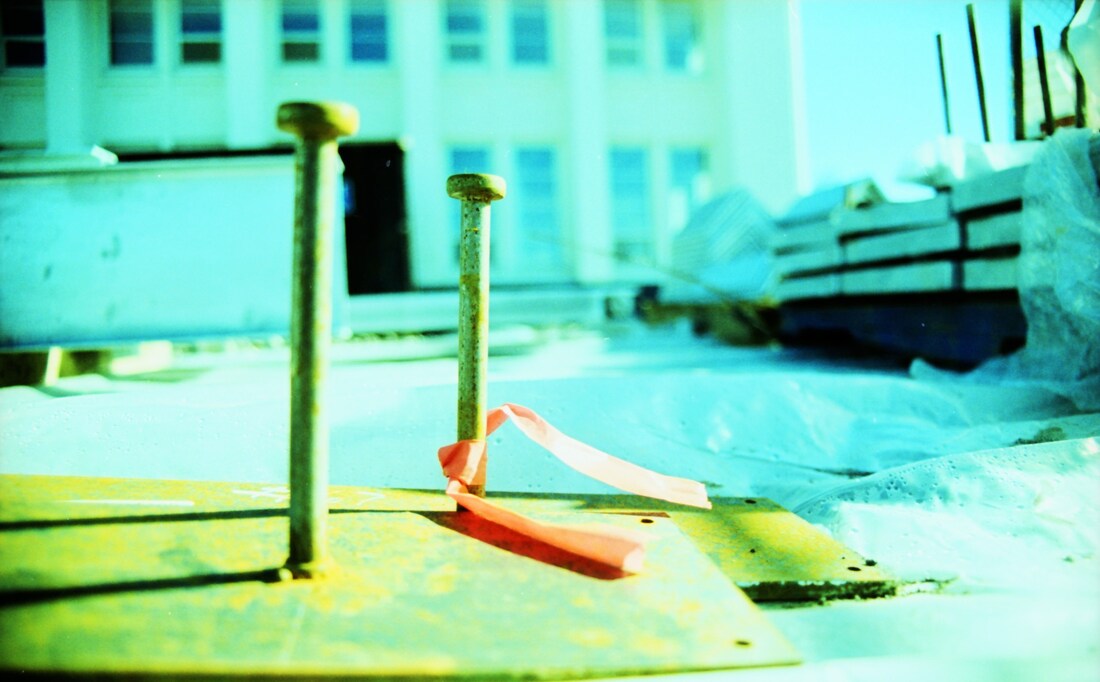
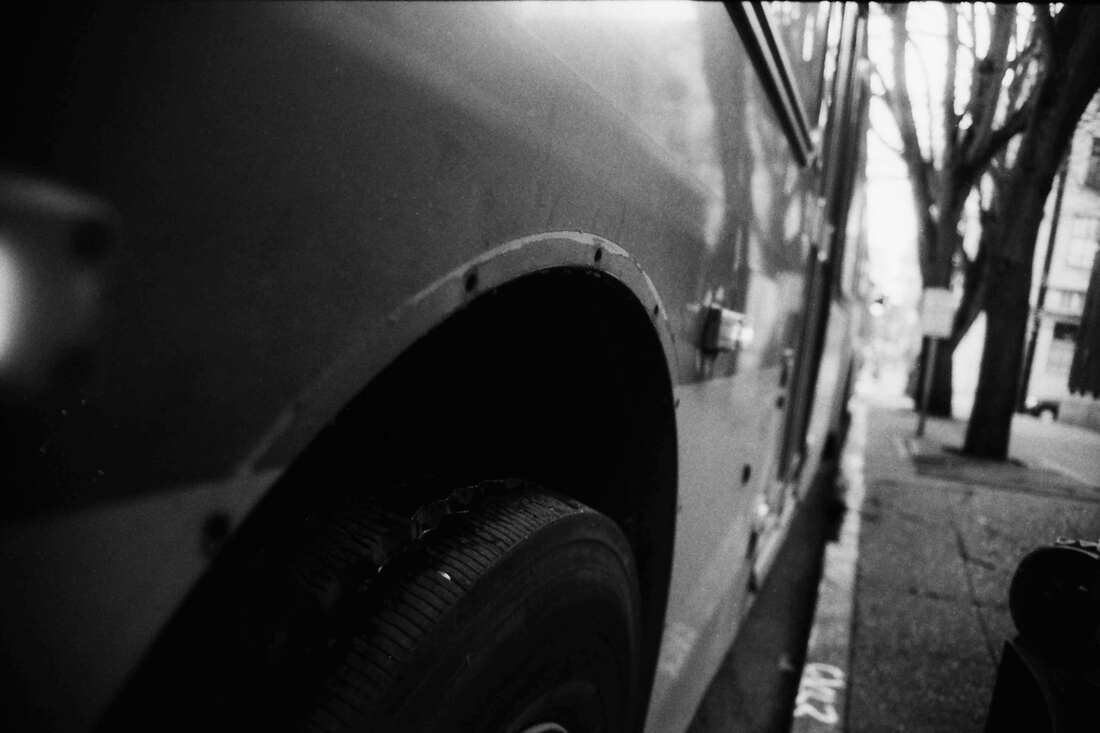
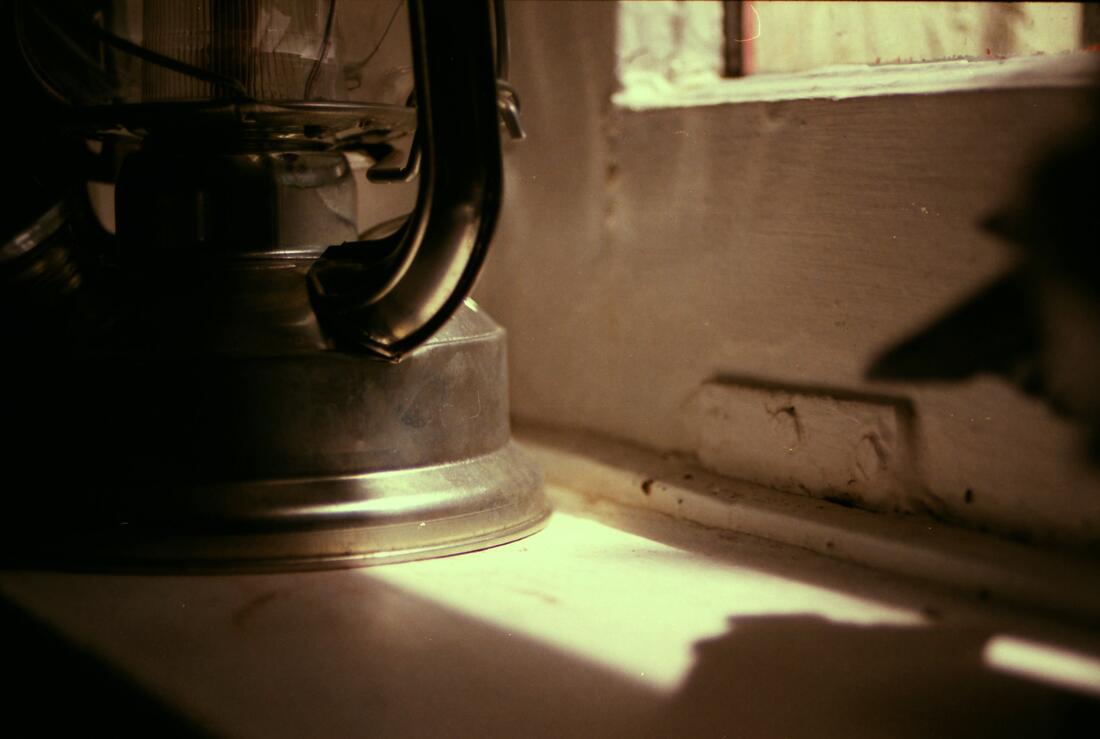
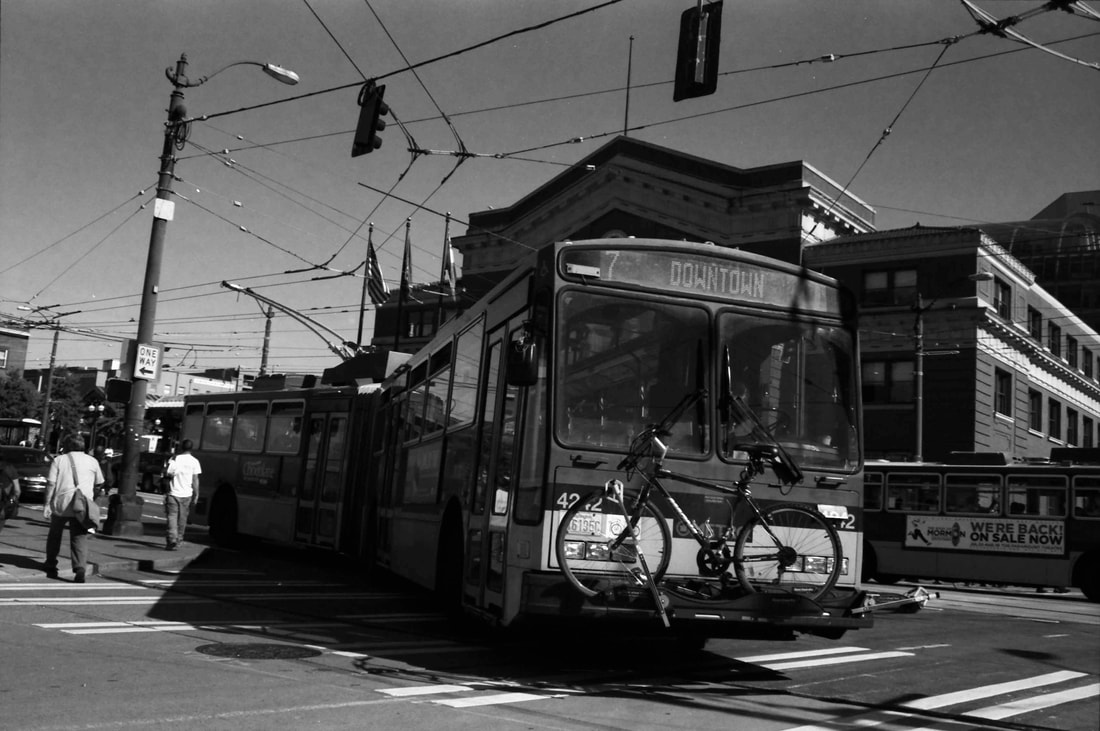
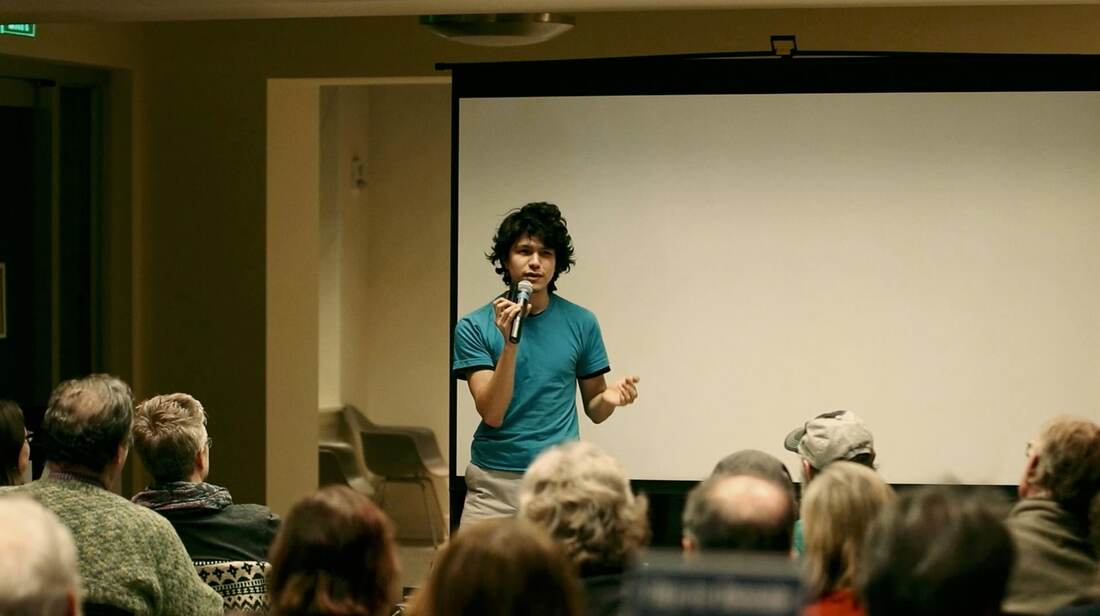

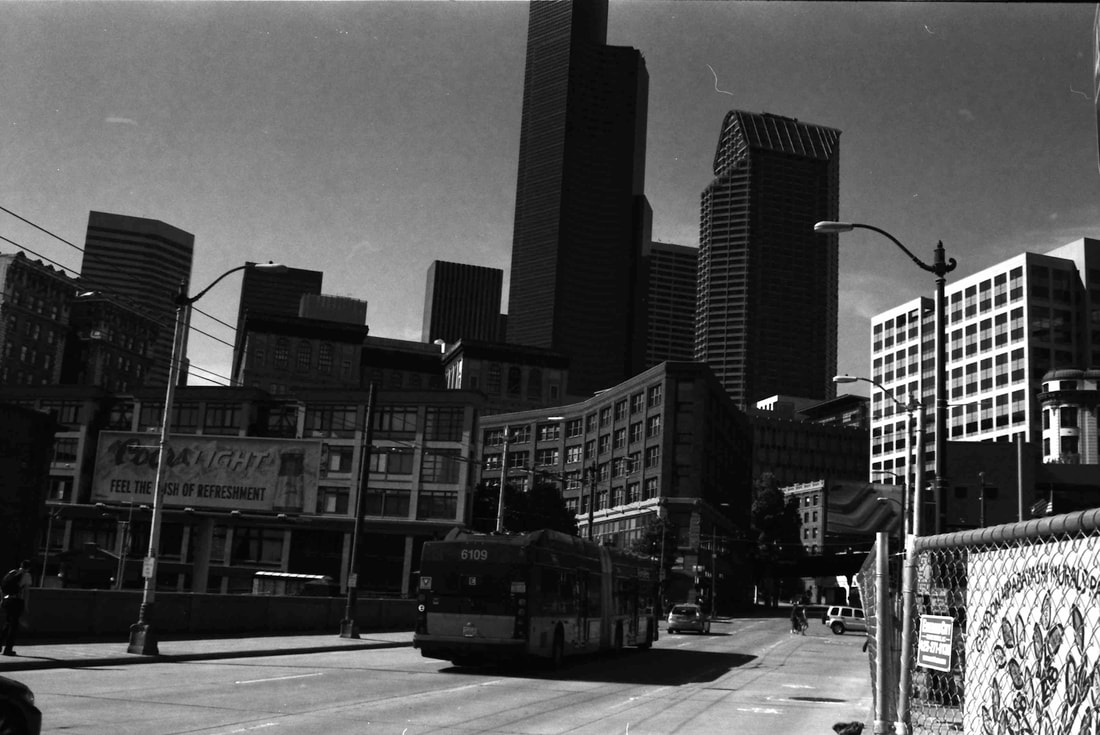

 RSS Feed
RSS Feed
